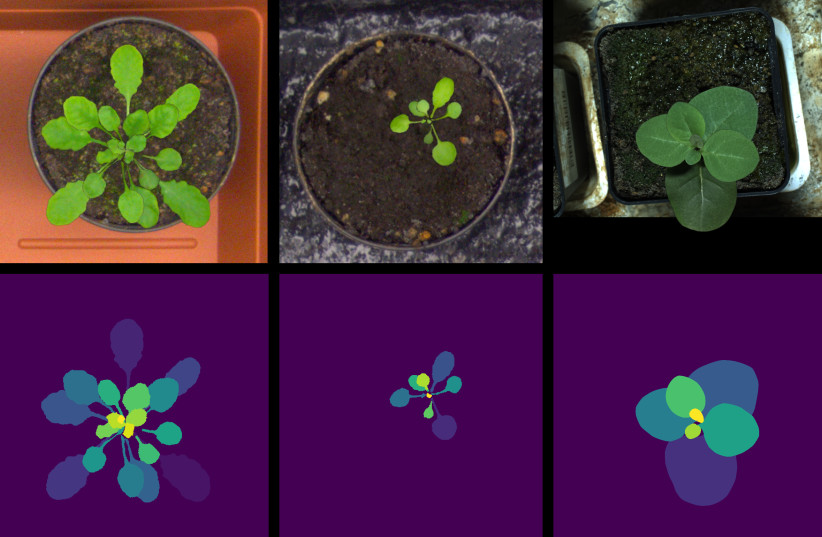Crop stress is a major concern in the field of agriculture, as it can mean the difference between a plant’s growth and lifespan.
By JERUSALEM POST STAFF FEBRUARY 7, 2021 16:02

Researchers from Technion-Israel Institute of Technology have created a new innovative technology to monitor forms of stress in different agricultural products.
Crop stress is a major concern in the field of agriculture, as it can mean the difference between a plant’s growth and lifespan. For this reason, it is crucial for those in the agricultural sector to detect water and heat stress early on in the growth process.
But Technion’s new agritech solution may be just what the sector needs, being an automated system that monitors and predicts crop stress and leaf segmentation through the use of color photographs, thermal imaging and deep learning. Tests by the project’s leaders at the Geometric Image Processing Laboratory (GIP) in the Henry and Marilyn Taub Faculty of Computer Science — consisting of research assistant Alon Zvirin, GIP lab head Prof. Ron Kimmel and chief engineer Yaron Honen — showed an accuracy of more than 90% in the prediction.
“The detection of drought stress enables the plant to be saved, allows for the identification of diseases and the prediction of crop yield quantities, all of which are crucial information for the grower,” Zvirin said in a statement.In addition, the project was not just limited to the three leaders, rather it was expanded to include younger researchers who are just starting out, giving them important roles in the process, Zvirin added.“They brought excellent ideas and did a great job,” he explained.
“Two of them are also listed as lead authors of the articles: Dmitri Kuznichov, who will shortly be completing his master’s degree under the supervision of Prof. Irad Yavneh and Prof. Ron Kimmel, and Sagi Levanon — a graduate of the Psagot Excellence Program, who has started studying for his second degree in the faculty.”
The findings regarding stress detection were published in an article at the European Conference on Computer Vision (ECCV) and the findings on segmentation were published at the Conference on Computer Vision and Pattern Recognition (CVPR).
